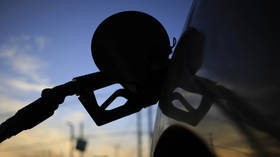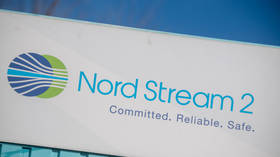European prices for liquefied natural gas (LNG) exceeded $1,000 per 1,000 cubic meters on Wednesday, marking a daily growth of more than 7%, according to Intercontinental Exchange’s London clearing house.
The March futures on the title transfer facility hub in the Netherlands traded at $1,004.7 per 1,000 cubic meters, marking a 7.8% increase from Tuesday, when the gas was trading at $932.3.
There was a major hike in gas prices in the region last spring, when futures were hovering at around $300 per 1,000 cubic meters. The spot price had soared to $600 by the end of the summer, then to $1,000 in October, and hit an all-time high of $2,190 in December.
The dramatic surge was attributed to a wide range of factors, including an increased demand for LNG in Asia, the limited supply from major exporters, and under-filled European storage facilities after last year’s hot summer and harsh winter.
The situation was exacerbated in late 2021, when the US authorities first alleged that Moscow was likely to launch a military assault on Ukraine and threatened to impose new sanctions on Russia, the EU’s major LNG supplier. Those speculations have been repeated since then by Western media outlets as well as by European officials, sending the prices of commodities, including gas, skyrocketing.
Prices started cooling in December, with gas trading at trading at under $1000 per 1,000 cubic meters on the Dutch futures market, a European benchmark.
The latest surge comes a day after Germany suspended its certification of the Nord Stream 2 pipeline, putting the energy project with Russia on hold indefinitely. The move was among the penalties imposed on Moscow following President Vladimir Putin’s decision to recognize the independent status of the breakaway republics of Donetsk and Lugansk in eastern Ukraine.
The Gazprom-led project is aimed at boosting Russia’s capacity to deliver LNG direct to Germany, circumventing the land routes that pass through countries such as Ukraine.
On Wednesday, European Commission Executive Vice-President Margrethe Vestager said Germany’s decision to halt the turning-on of the controversial pipeline would not affect EU gas prices.
“There is no gas in the Nord Stream 2 pipeline. What has been stopped is the approval … it needs in order to get into operation, which means stopping the approval process can have no effect on gas prices,” Vestager told a news conference. “We stand fully by the German authorities,” she said.
For more stories on economy finance visit RT’s business section
Article source: https://www.rt.com/business/550359-gas-price-spikes-europe-nord-stream/?utm_source=rss&utm_medium=rss&utm_campaign=RSS


Speak Your Mind
You must be logged in to post a comment.